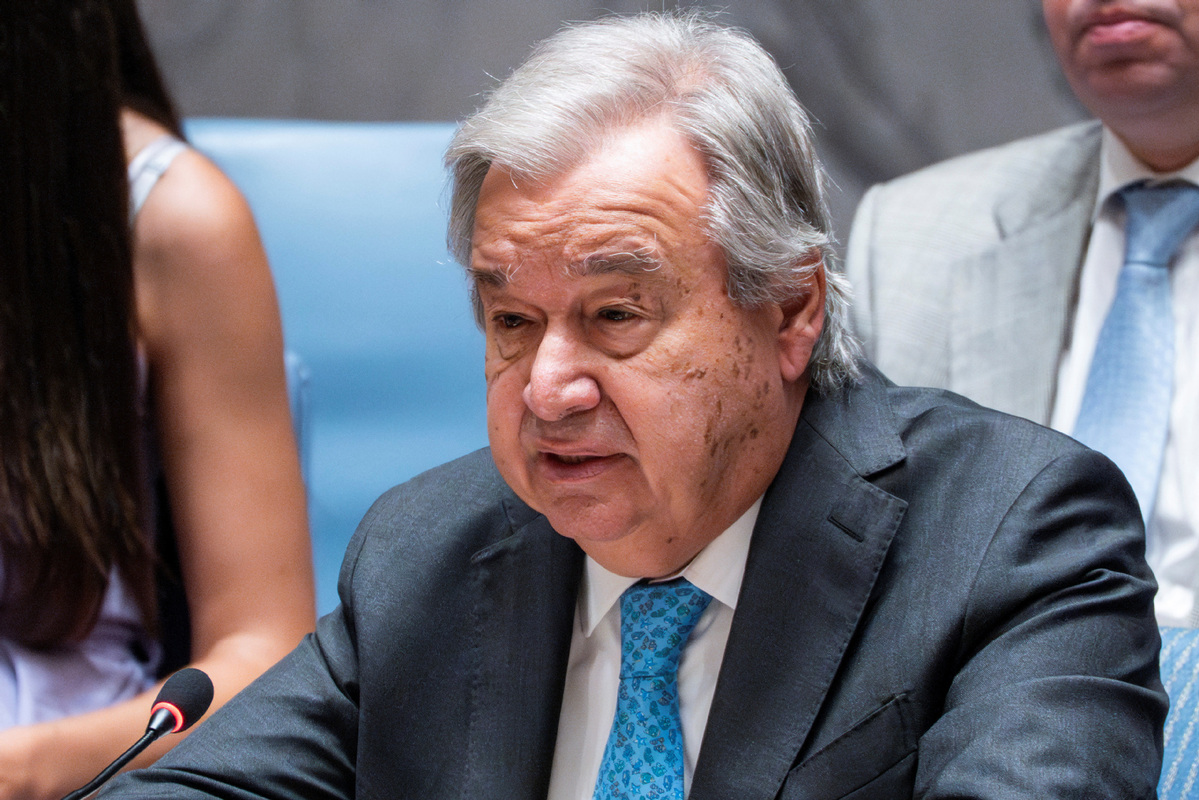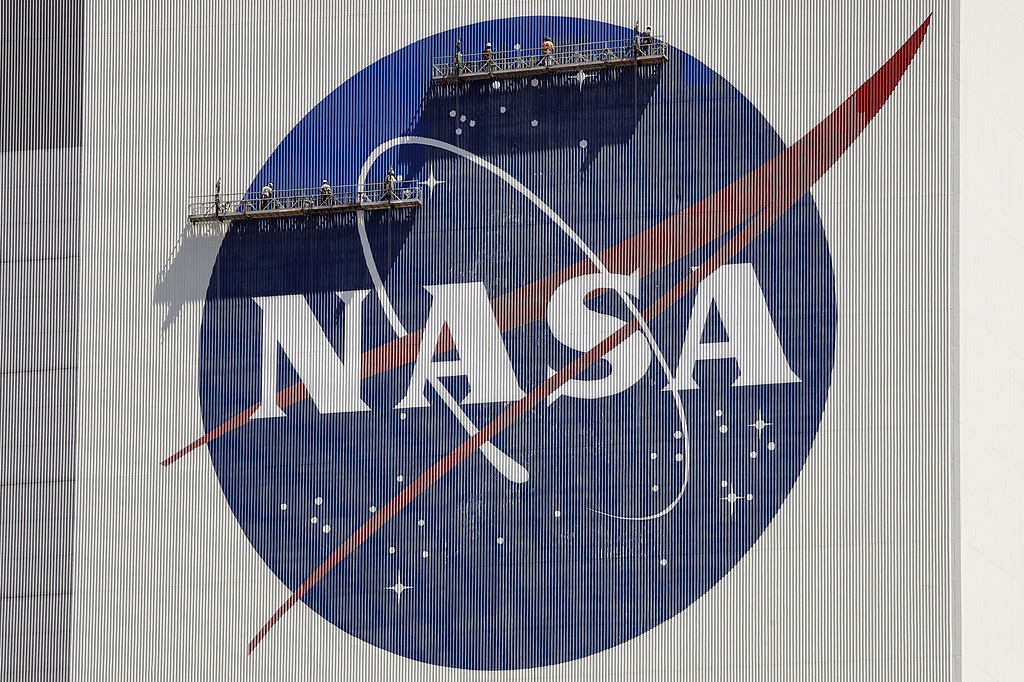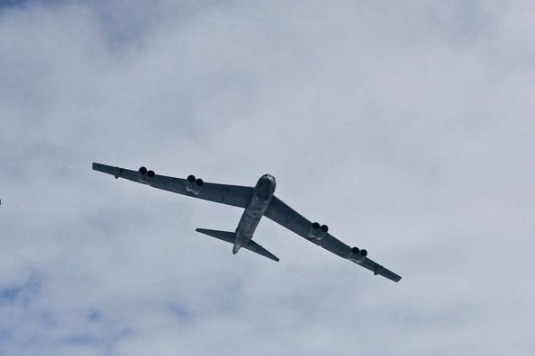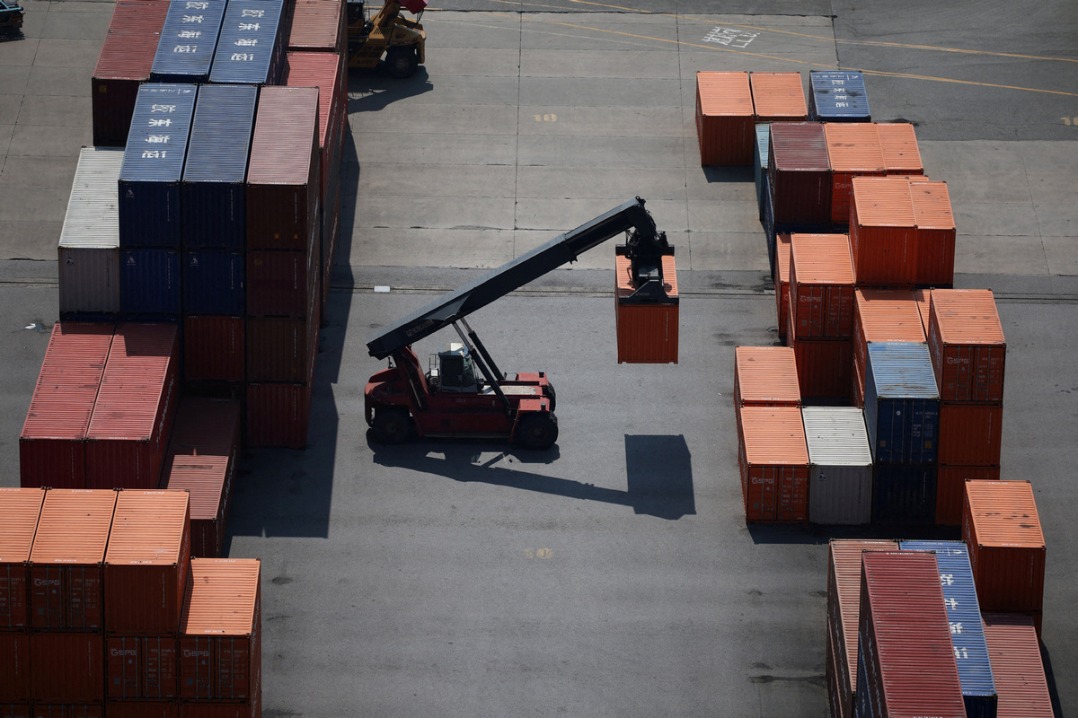UN chief says Gazans losing lifelines as aid system threatened


UNITED NATIONS - UN Secretary-General Antonio Guterres warns that the last lifelines keeping Gazans alive are collapsing as the humanitarian system is being impeded, undermined and endangered, a UN spokesman said on Monday.
Stephane Dujarric, chief spokesman for Guterres, said the secretary-general "is appalled by the accelerating breakdown of humanitarian conditions in Gaza, where the last lifelines keeping people alive are collapsing."
Deploring the growing reports of children and adults suffering from malnutrition, Guterres strongly condemned the violence, including the shooting, killing and injuring of people attempting to get food for their families, Dujarric said.
The spokesman added that the weekend evacuation order for parts of Deir al-Balah pushes people into more desperate conditions and further displacement and restricts the United Nations' ability to deliver life-saving aid.
He said that the UN staff remain in Deir al-Balah and that two of their guesthouses, which are inviolable, came under fire, despite informing the Israeli military of their locations. There were no injuries among staff members, although the guesthouses suffered damage.
Dujarric said the sites must be protected, regardless of evacuation orders, as with all civilian locations.
"The secretary-general reiterates his urgent call for the protection of civilians, including humanitarian personnel and for the provision of essential resources to ensure their survival," the spokesman said.
Guterres called for an immediate ceasefire and the immediate and unconditional release of all hostages, adding that the United Nations stands ready to scale up humanitarian operations.
The UN Office for the Coordination of Humanitarian Affairs (OCHA) reported that amid shelling, displacement and destruction, it received deeply concerning reports of severely malnourished people who are arriving at medical points and hospitals in feeble health.
On Sunday, the World Food Programme (WFP) reported that a convoy carrying vital food assistance crossing from Israel into Gaza encountered large crowds of desperate and hungry civilians.
The WFP said that as the convoy approached, the surrounding crowd came under fire from Israeli tanks and snipers. The agency said it is deeply concerned and saddened by this tragic incident resulting in the loss of countless lives. Many more suffered life-threatening injuries.
OCHA said the consistent and safe delivery of aid at scale must be facilitated to reach more than 2 million people on the brink of famine.
OCHA said that initial estimates indicate that 50,000-80,000 people were in the area at the time the order was issued, including 30,000 people sheltering in 57 displacement sites.
Several primary health clinics and medical facilities are within the newly designated area, along with the Southern Gaza Desalination Plant, and other vital water infrastructure.
The plant is a primary source of drinking water for the displaced in Al Mawasi, serving hundreds of thousands of people. The office said that loss of the facility would be catastrophic.
OCHA said that as of early July, 80 percent of water, sanitation and hygiene facilities fall within the Israeli-militarized zone or in areas that have been placed under displacement orders. In June, it was estimated that 93 percent of households had no water.
The office said that while UN staff remain in Deir al-Balah, its humanitarian partners have relocated to the northern part of Deir al-Balah or Al Mawasi.
OCHA said that 87.7 percent of Gaza is now under displacement orders or within Israeli-militarized zones, squeezing 2.1 million people into a fragmented area of the strip, where hardly any services are available.
UN agencies report that approximately 1.35 million people need shelter and household items. Frequent disassembly and reassembly of tents and tarpaulins lead to a shorter lifespan of shelter items, further exacerbating the dire situation.
Shelter supplies have not been allowed to enter Gaza for more than four months.
In addition, the fuel crisis continues. OCHA said that the limited quantities allowed to enter Gaza in recent days are hardly sufficient. UN agencies and partners are prioritizing this fuel for the most critical operations.
"The Israeli authorities must facilitate the unhindered provision of urgently needed humanitarian assistance, including fuel, food, aid and shelter items, into and throughout the strip, to enable humanitarians to provide life-saving services for the deprived population," OCHA said.

































